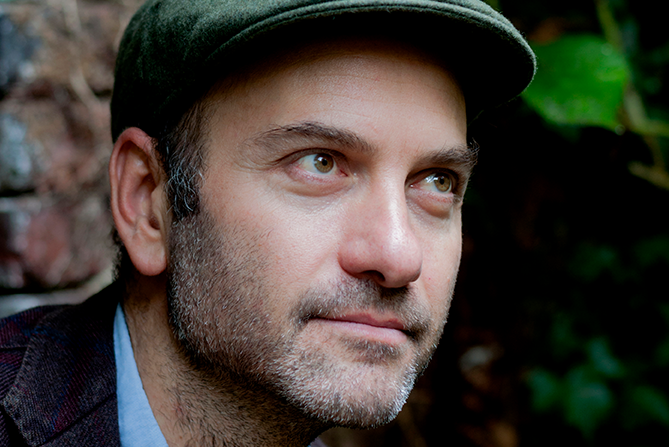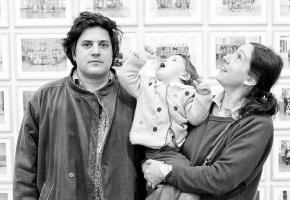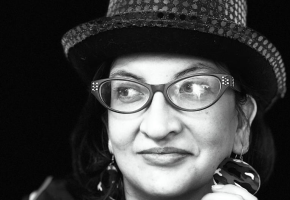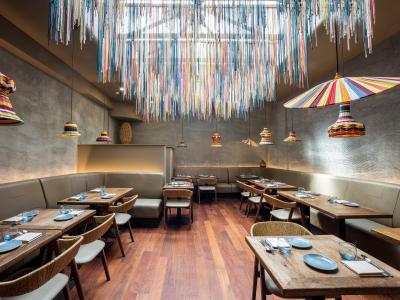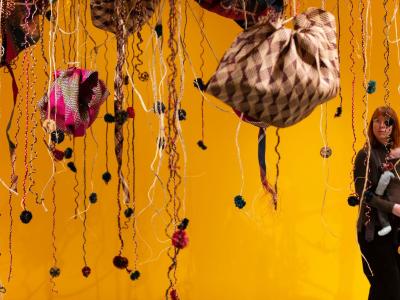Leo Boix
Since Leo Boix was a child in Argentina, he loved to read and write. He loved gifting books and he would spend time and thought, when still very young, on the dedications, which tended to be long and lyrical, prompting his grandfather to call him ‘the poet’ while he was still under 10 years of age.
It is of this grandfather that he writes in “Portrait of my Grandfather with Scissors”. Leo Boix: -
“He had always had his own business, and it’s the history of many Argentines who had grand illusions although the situation was always bad. For instance, the [Peronist] government bankrupted his business and yet he still continued to go diligently to work in the local ‘colectivo’ bus. He was very cultured and well-read and loved to know about everything. I got my love of books from him. My poem talks about that.”
Poem section: -
“Later he was hired as a junior shop assistant,
Brought with him his prized pair of scissors”
These poems reverberate with rhythm, pain, nostalgia and joy. But why this title? For some, it seems strange to have a ‘Happy Immigrant’.
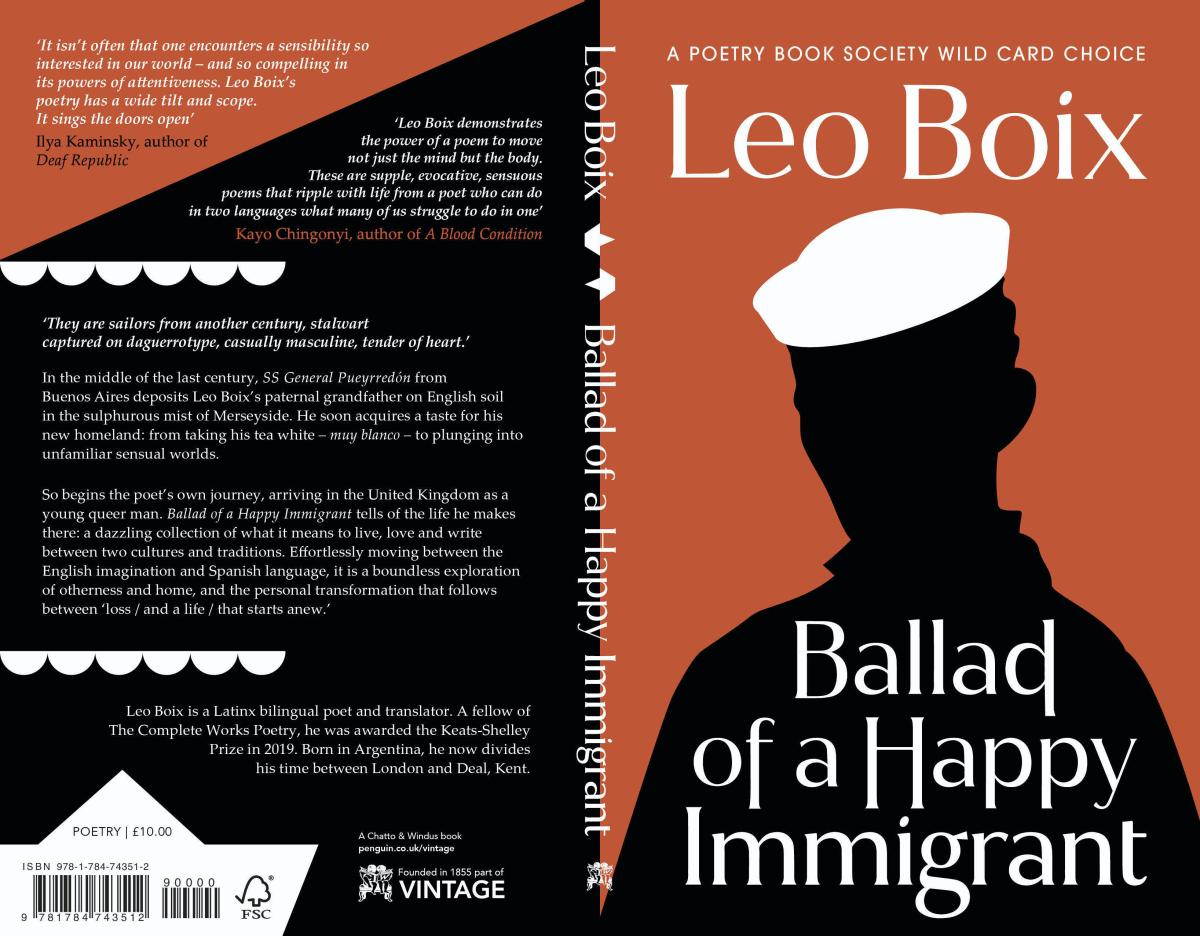
Book Cover
Leo Boix: -
“I thought a great deal about the title of the book because there is a kind of double meaning. We always think of immigrants as people who suffer, full of problems, having left their countries, there is an assumed negative charge. But I thought there is also another story, another side to this, given everything that we learn from new experiences, of our new lives as immigrants. There is much to gain as a foreigner, so the title has a little irony… it is tongue-in-cheek!!
In effect in his book, Boix writes of both these stories: -
“There are, for instance, poems about the experience of having to leave loved ones behind, the gradual unravelling of those familial links, those close contacts that go dying or disappearing and it is so hard not to be there and experience them from afar… I was looking for all these aspects and I like the idea of achieving some nuance.”
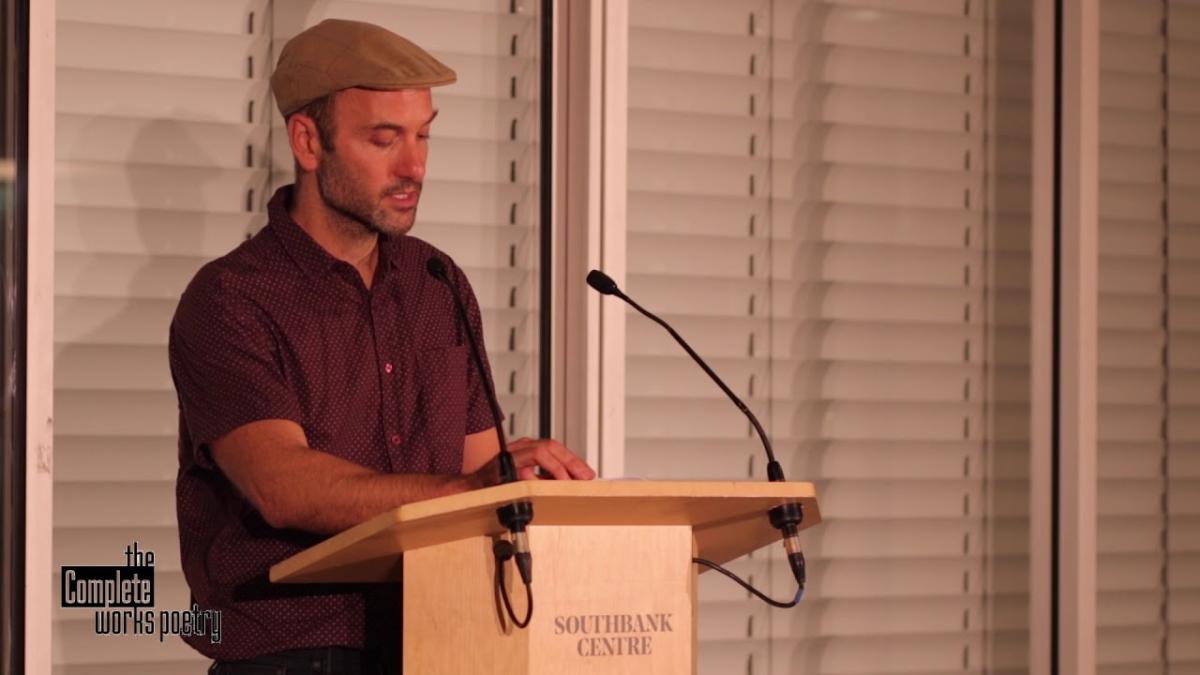
Leo Boix reading his petry at the Southbank Centre- London
Boix and his partner have no children, so in contrast to his previous life in Argentina, it is more solitary, although it is more independent. Here in the UK, he created a new family and a new life in this new country.
‘Through the dream
Where the tree grows taller
Every time I look back.’ Eucalyptus ( Leo Boix)
There is a sensation of loss in many of the stories, as in 'Eucalyuptus' (see fragment above), where the poet remembers his father. His mother died young and he lost his father a few years ago, but despite having sisters and nieces, he feels as if a symbolic thread to the past that tied him to Argentina has broken with their loss.
Leo Boix writes in both English and Spanish. Notably his first two publications have been in Spanish: ‘Un Lugar Propio’ and ‘Mar de Noche’, so it has led people to ask , why write in English? But Boix is now a bilingual poet who moves between the two languages with ease. Even if it was not always the case. When he first arrived on these shores, he could barely speak English, however, he managed to go to university where he read English Literature and poetry and, since then, he has been fascinated by the many poetic forms present in the English language.
“This is the first book I have written in English. I write in many different ways and the poetic form is of great interest to me, with form I mean, for example, sonnets, Odes, or ballads, and other forms of poetry. [During Lockdown] I wrote a series of sonnets in English that are becoming my next project. When I write in Spanish, Interestingly, I write very differently even in the choice of themes. Some coincide but others do not. When I write in Spanish, I am aware I have a reading audience, for example in Argentina or in Latin America, but in English I have a very different audience.”
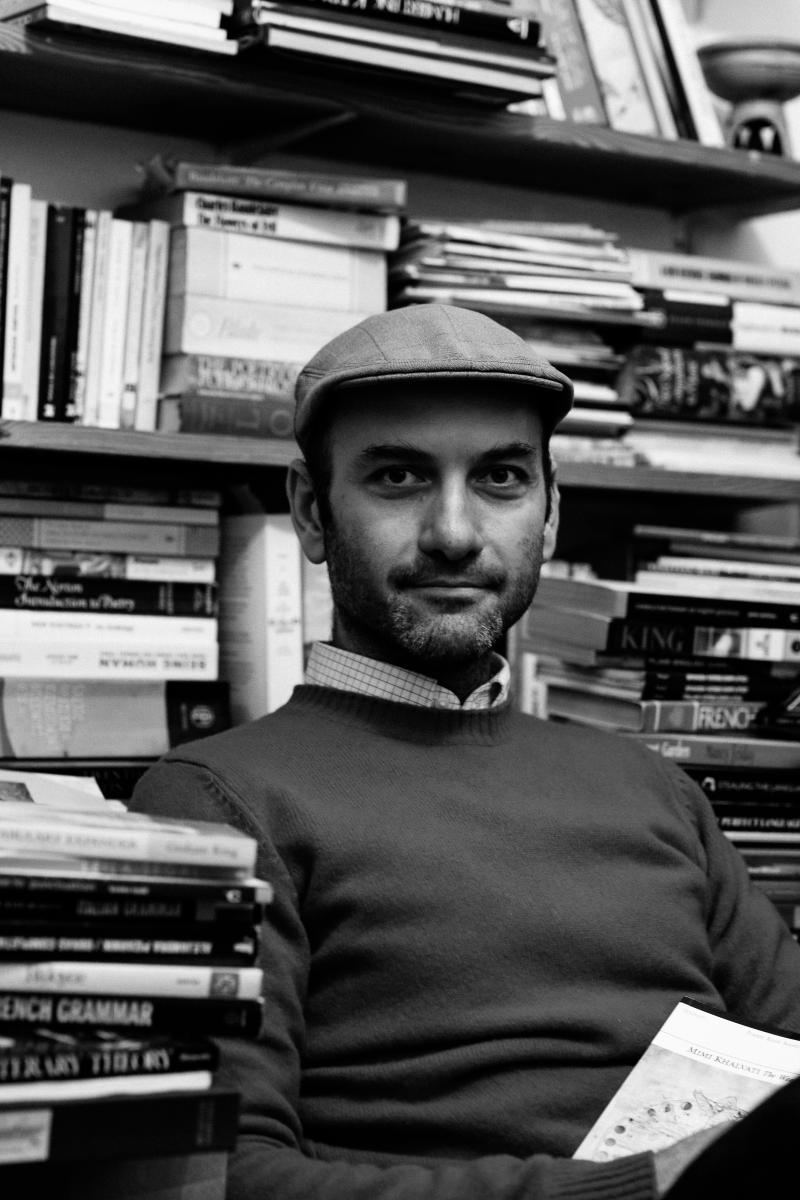
Leo Boix in his study
Some poetry is performance poetry, for the spoken word. In that case. It has a theatrical element and it is written accordingly. An example would be a poet like Benjamin Zephaniah. Leo Boix teaches poetry workshops at a primary school. These are always for the spoken word as that is a wonderful way to inspire young people to get into the medium. For its immediacy and accessibility, being fun and like theatre.
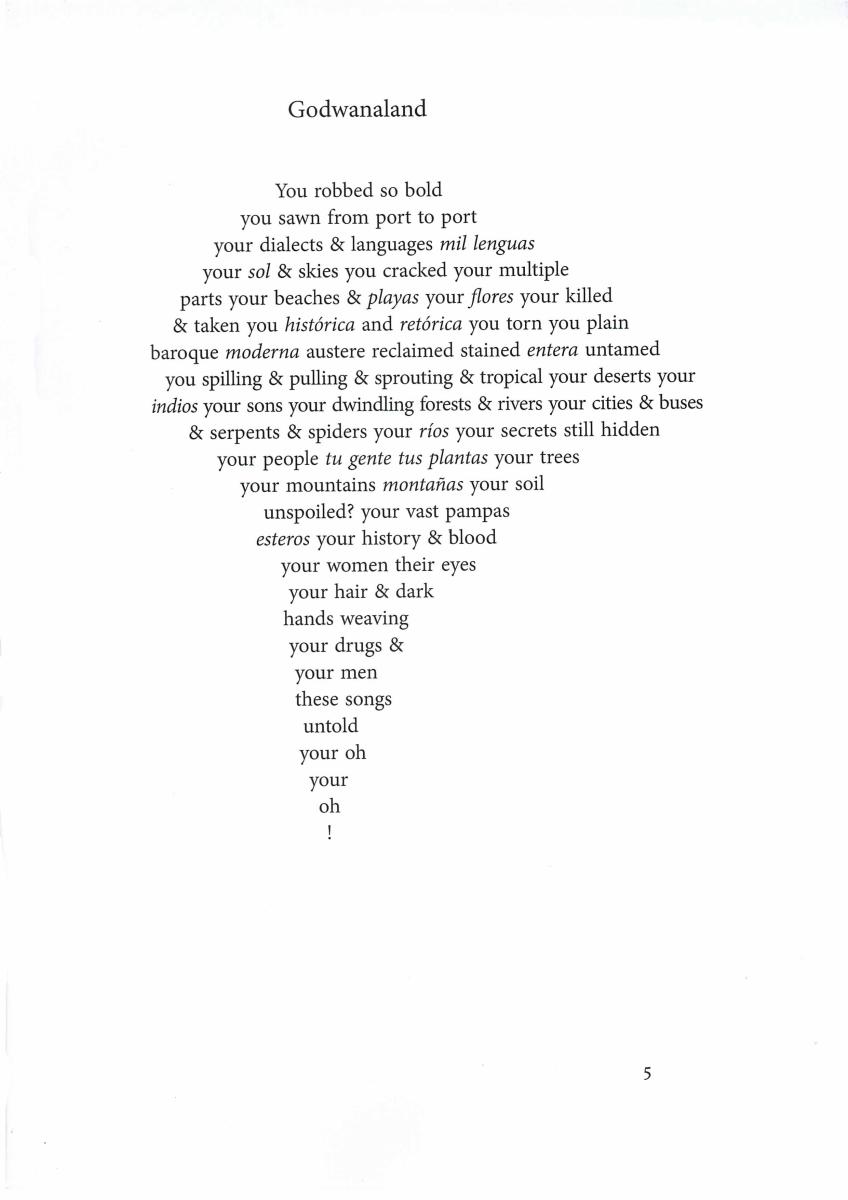
Godwanaland. Ballad of a Happy Immigrant
But by preference, Boix writes poetry that is meant to be seen and read. See Godwanaland (above) that is carefully shaped like the continent of South America. This allows for a more contemplative element, so that in some cases, time and space become important and the line that read once, seems simple, once re-read, and seen, can reveal other complexities. Even in his poem ‘Ballad to a Happy Immigrant’, the refrain 'Come back a man or never come’, may have the same words every time, but in context to the other phrases and lines, there are nuances and subtle changes in meaning each time.
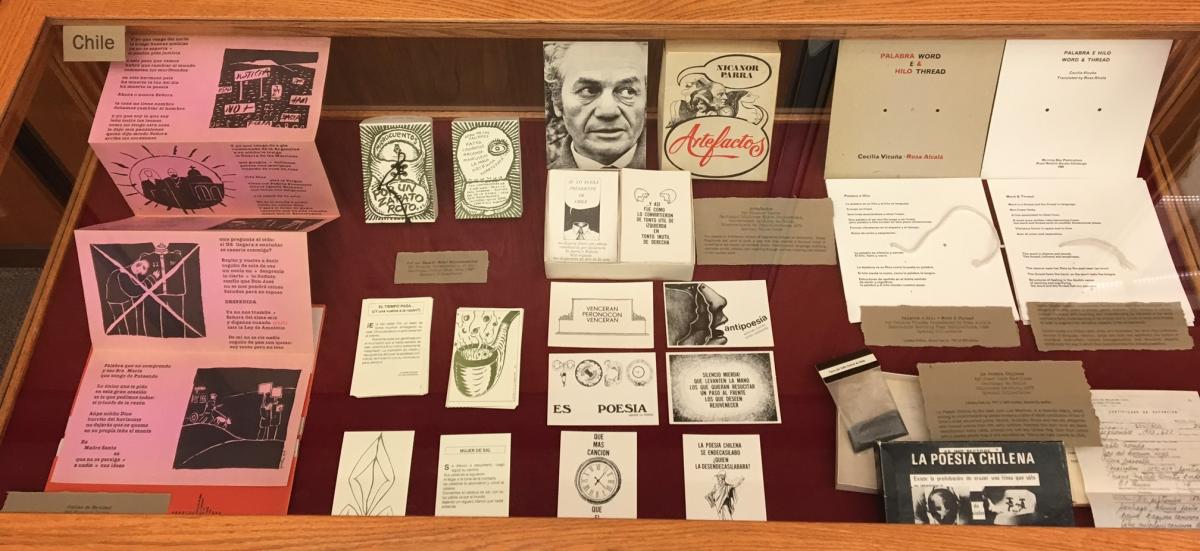
Samples of Chilean Concrete poetry 1950s
So, we cannot ignore the strong visual element in some of Boix’s poetry. He stresses that Concrete poetry has been an influence, but only one of many, but it seeps into a number of his works. Concrete poetry which was developed largely in Brazil, as well as Argentina and Uruguay, even Chile during the 1950s , probably grew out of Dadaism. Some important exponents were the brothers Augusto and Haroldo de Campos, (who founded the Noigandres Group in São Paulo) and Décio Pignatari, Lygia Clark from Brazil, Clemente Padin from Uruguay, or Huidobredo from Chile. They emphasized the graphic element, making the experience pluri-dimensional. In Argentina and Uruguay, the artists developed an alternative orientation by equating concretism with Marxist principles, with the aim of radically condensing poetic structure exposing the optical and the sonorous materiality of language.
“In my case, my poetry is more for reading … some of my poems are experimental … there is one poem that refers to the movement of the water and the waves in the boat, and there is a poem in the shape of South America called Godwanaland…Which means that you have to read them. You have to see it on the page. The visual element which is not a coincidence, it is an element. Mostly because Concrete Poetry was born in Latin America, in Brazil in the 1950s.”
Citing Jorge Luis Borges as a key influence, Boix nevertheless stresses the importance of Anglo- Saxon poetry as well as that emanating from Iceland or Japan, as in Haiku.
“I tried Haiku. Since the beginning of the lockdown I was quite stuck. I was working on my book last year, but it was pretty much finished. So, I thought I must do something or I would go mad, so I began writings a few Haikus per day. I wasn’t sure about it so I showed them to my partner and various other people and they said: it’s interesting, keep going. So, I was quite encouraged and kept writing more and more. I wrote Haikus every day of the lockdown and now I have 8000 haikus! Hopefully, I will publish some. They read almost like a diary or a journal of that period of the pandemic. Some haikus are about minute things, a plant, a flower or a bird and some are perhaps more sombre, where I reflect on death or life passing, even little details because that is really the interesting thing about Haikus, that they are very short, very concise, and in a few lines and words you need to convey an idea or an image.”
Being a translator as well as a poet, Leo Boix has found translation a very rewarding experience.
“[It is] very difficult to translate poetry, but also very challenging and inspiring as a poet, because you are entering the mind of that other poet, and you try to look at the poem and convey what the original poem is doing. Because I am a poet, I am fascinated by that process and sometimes I try to reproduce it in my own work… For instance, there is, what I call Variations inspired by Eduardo Eielson. I translated his work into English and then I did my own versions. In some cases, just changing a few words, or just responding to specific poems. I included that, not only because I am fascinated by translation, being a translator myself, but because I think, in a way, the book talks about translation in a wider sense… as in being a migrant, a foreigner, you are constantly trying to understand what is going on, both ways, it's an ongoing process.”
A passionate wild swimmer, Boix spends time between Deal in Kent and London . He tries to swim every day, be it winter or summer, however cold! It appears to be a genetic issue, as his mother was also a keen swimmer and he has written many poems about her and the sea.
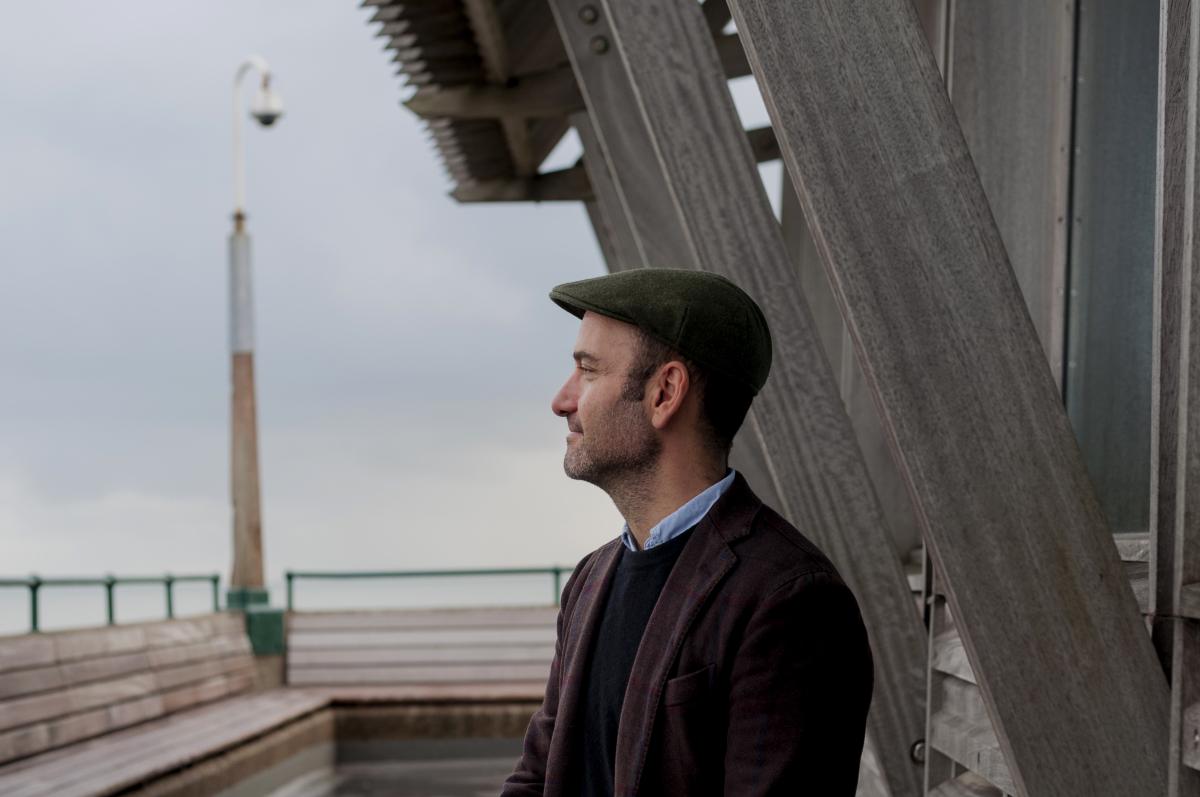
Leo Boix at the seaside
His second poetry collection 'Mar de Noche' was inspired by water and the experience of swimming. Another favourite subject matter is Nature, in particular birds.
“I am fascinated by the fact that birds move around, from country to country and they do it every year. There is this element that I find fascinating as a migrant myself, I look at birds all the time.”
On December 8th there will be an event in King’s Place dedicated to the celebration of Leo Boix’s book.
The guest reader will be Janel Pineda a Los-Angeles born Salvadorian poet, educator, and the author of Lineage of Rain (Haymarket Books, 2021). There will be a video as well as music, provided by the Argentine musicians Gaby Echevarría and Piero Pierini.
KING’S PLACE / December 8th 7:30 PM / Hall two
https://www.kingsplace.co.uk/whats-on/words/ballad-of-a-happy-immigrant/
020 7520 1490 / info@kingsplace.co.uk
Not to be missed


